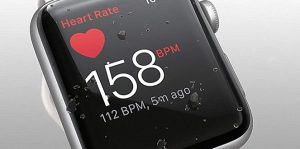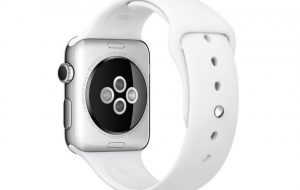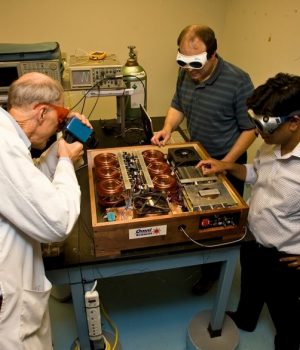Omni MedSci today filed a lawsuit against Apple Inc in a U.S court for infringing on its patented technology with Apple Watch’s heart rate sensor, according to reports.
In the five -count lawsuit, filed in the Eastern District of Texas, the Michigan-based startup has accused the iPhone maker of willfully infringing on its patents and sought an injunction against the company as well as damages.
Omni MedSci, which is owned by an optical and laser technology expert Dr Mohammed Islam, claims that it was in talks with Apple for partnership from 2014 to 2016, but the California-based company ended discussions and then used its patented technology in the smartwatch.
US Patent Nos. 9,651,533 and 9,757,040 were granted in 2017, while U.S. Patent Nos. 9,861,286 and 9,885,698 were issued earlier this year, reports Apple Insider.
According to the lawsuit, Islam met with Apple employees Michael Hillman and Dr Michael O’Reilly in Cupertino, California on June 11, 2014, to discuss his company’s then patent-pending technology.
Hillman then arranged a meeting between Islam and ten Apple employees to discuss the details of the technology. The meeting took place on February 5, 2015, at Apple headquarters.
The document further notes that Apple’s Vice President of Product Marketing Greg Joswiak sent an email to Islam on July 14, 2016, inviting him to visit the company.
The meeting took place on July 18, 2016, in which Islam shared the patents-in-suit with company’s employees. He continued to correspond with them regarding the status of his patents.
On December 21, 2017, Islam emailed Apple employees Drs. Ed Hull and Shonn Hendee identifying the issued ‘533 and ‘040 patents. In response, he received an email from Dr O’Reilly stating:
“We [Apple] don’t wish to receive any information about any of your IP [Intellectual Property],” the lawsuit notes.
 Apple has yet to comment on Omni MedScri’s allegations.
Apple has yet to comment on Omni MedScri’s allegations.
Heart rate sensor comes in as a built-in feature in Apple Watch since its debut in 2015. It enables the users to keep an eye on their resting heart rate and alerts them if it goes above a certain level.
Mobile health data company Cardiogram in its recent study suggested that besides a variety of heart diseases, the sensor can also detect several other health problems like atrial fibrillation, diabetes, hypertension, and sleep apnea.
Islam’s patent holding company, Cheetah Omni, has also filed similar lawsuits against Huawei, Nokia, and Siemens, Fujitsu, Alcatel-Lucent and other companies in the past.
Overall, Islam runs six companies and owns over 150 patents.
In 2015, Crain’s Detroit Business, a local outlet, had described him as the “poster child” of a patent profession.
“He’s founded six companies based on his patents. He teaches courses on the subject, showing University of Michigan engineering students the right and wrong ways to win patents. And he has collected more than 150 patents of his own, or so he thinks,” the article read.









